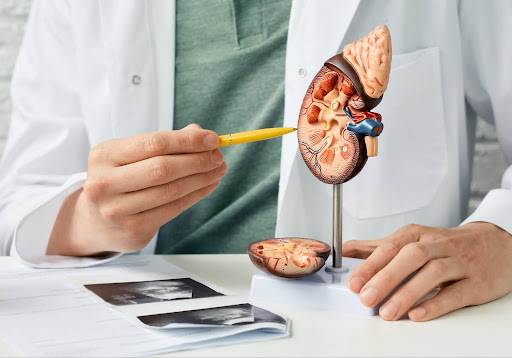
There are many different factors and symptoms that can lead to erectile dysfunction, so it’s no surprise that it is the most common sexual problem that men report to their doctors. It is estimated that erectile dysfunction affects as many as 30 million men. Due to its prevalence, it’s important to identify the root cause of the issue to figure out the best treatment plan. To provide you with a little more information about solving this common problem, we’re sharing some of the most popular treatments for erectile dysfunction.
What is Erectile Dysfunction?
Erectile dysfunction (ED) is characterized by a man’s inability to achieve or maintain an erection. ED can be frustrating and has the potential to lead to anxiety, depression, and low self-esteem. Once these distressing mental symptoms have been established, it can create a continuous cycle where depression, anxiety, or low self-esteem can cause more problems with ED. Erectile dysfunction also poses a problem when a couple is actively trying to conceive, so treatments for erectile dysfunction can help benefit fertility and improve the chances of starting a family.
Risk Factors for Erectile Dysfunction
As we previously mentioned, a variety of causes and factors can lead to erectile dysfunction. Certain lifestyle factors, including smoking, drinking, drug use, lack of exercise, or obesity, can lead to insufficient blood flow to the penis, making achieving or maintaining an erection difficult or impossible. This blood flow can also be compromised by cardiovascular problems such as hardened arteries, high blood pressure, heart disease, or medical conditions like diabetes. Other medications, age, and mental health issues are all additional risk factors for erectile dysfunction.
Treatments for Erectile Dysfunction
Medication
Some of the most common treatments for erectile dysfunction are FDA-approved oral medications such as Cialis and Viagra. These pills use PDE5 inhibitors to improve blood flow and erectile responses and should generally be taken one to two hours before intercourse. While most men have better erections after taking these medications, men who have diabetes or cancer have lower response rates.
Testosterone Therapy
If a low sex drive and low levels of testosterone are the causes of erectile dysfunction, testosterone therapy may be able to help. At Alliance Urology, we provide testosterone therapy or TRT to treat symptoms associated with erectile dysfunction and low testosterone. TRT may also help with bone and muscle health. There are various ways to administer testosterone therapy, including injections, pills, an implant, a patch, or a topical gel.
Vacuum Erection Devices
This device uses a pump to create a low-pressure vacuum around the erectile tissue. This pressure allows for blood flow to the penis resulting in an erection. An elastic ring is then placed at the base of the penis, which allows the erection to be maintained for up to thirty minutes.
Surgery
Surgery may become necessary if other treatments for erectile dysfunction are ineffective. In most cases, penile implants are used as a permanent treatment for ED and are devices that are placed fully inside your body. Penile implants result in a stiff penis that allows you to have spontaneous, normal intercourse. There are two different types of implants available: a semi-rigid implant or an inflatable implant. If surgery is determined to be the best course of action for you, a provider at Alliance Urology can work with you to decide which implant is the best option for your lifestyle.
Make an Appointment
To diagnose and treat any common problem related to the bladder or genitourinary system, including erectile dysfunction, schedule an appointment with one of our providers. Our team has years of experience treating issues pertaining to the urinary tract, bladder, and male reproductive system. For questions and inquiries, please call our office in Greensboro at (336) 274-1114.

